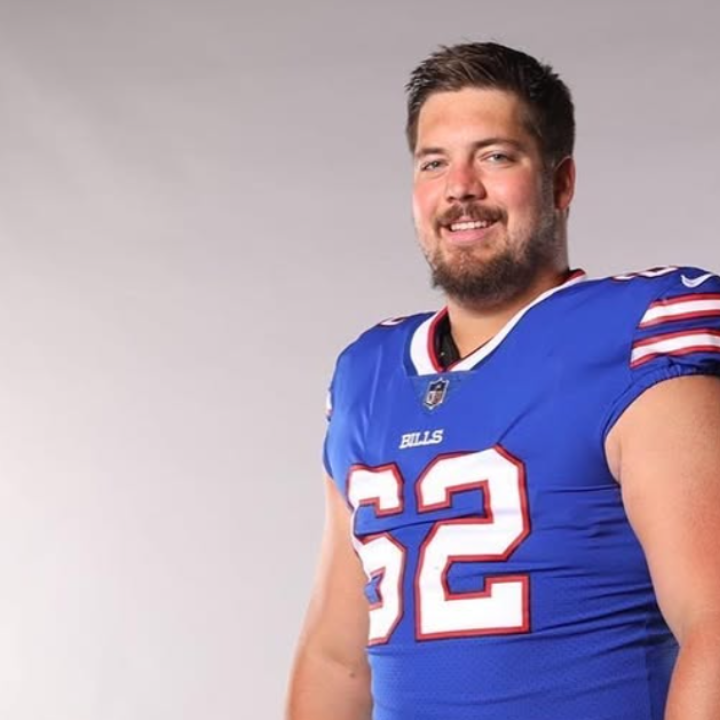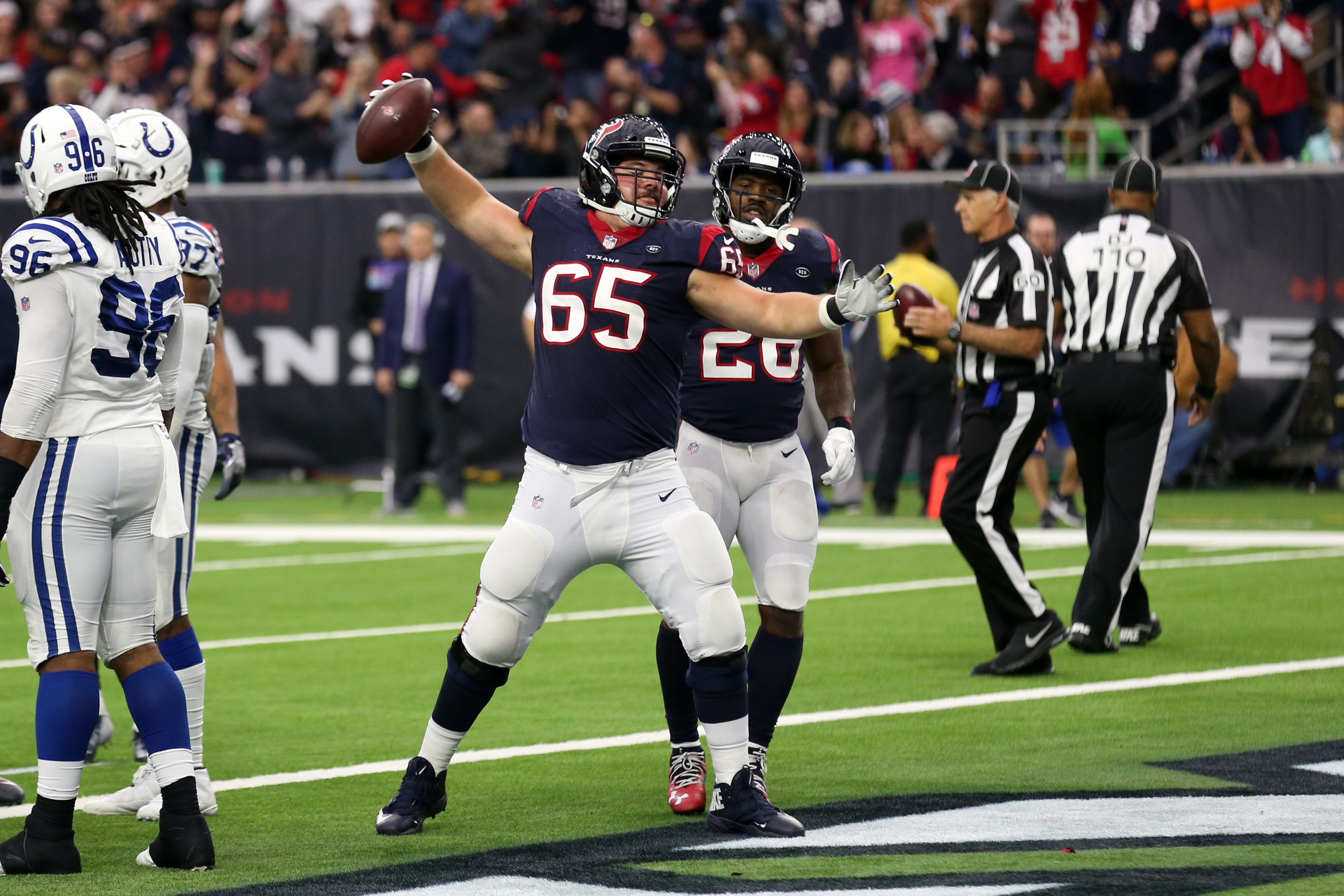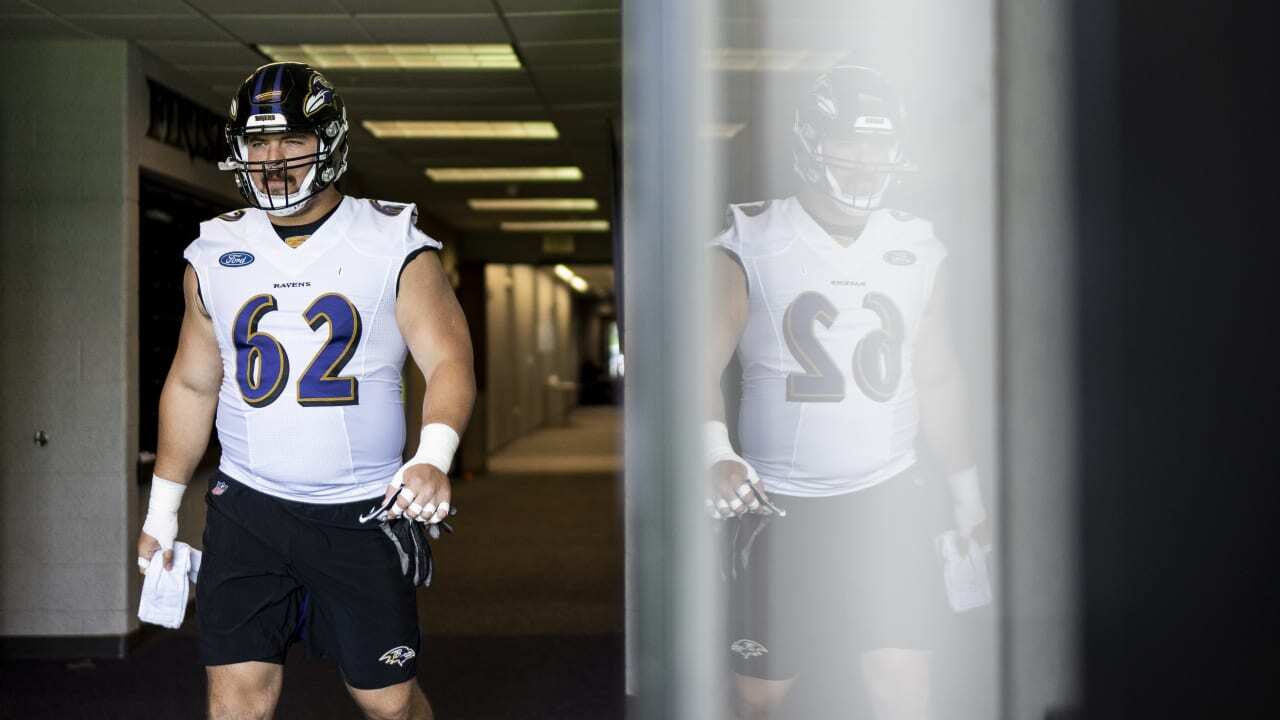
Catching Up With Former Player Rep: Greg Mancz
Greg Mancz is a former NFL offensive lineman who played 9 seasons between the Texans, Ravens, Dolphins, Bills, Browns, and Vikings. Undrafted in the 2015 NFL Draft, Mancz signed with the Houston Texans and played for the team from 2015 to 2020. In 2016, he became the first lineman in Texans history to start every game in a season. At his alma mater, the University of Toledo, Mancz was a four-year starter along the offensive line, earning multiple All-Mid-American Conference (MAC) honors and the Vern Smith Leadership Award in 2014, which is given to the best player in the MAC. He was also named a second-team All-American that year, the first Toledo offensive lineman to earn such recognition since 1938. We caught up with Greg and he gave us some insight into life after football.

What inspired you to become a Player Representative?
I'm going to give a little kudos to a guy named Brian Peters. He was with me when I was a Player Rep in Houston. He originally got me into it because we were coming home from New Zealand, and we were going to come to Vegas on the way back, which was cool. Lester was our Player Director. He was instrumental, but BP was the one who really got me interested in these topics. Being in a unique space throughout a lot of my career sort of made me realize that I really had an interest in some of the topics. I was part of the CBA voting and again during the COVID year voting. Those were my two years I got to vote. So, I got the full experience of diving in for the big negotiations. BP was the guy who initially gauged my interest, and then Lester increased that interest. He did a really good job of giving us responsibilities and getting us to ask good questions so that we would want to look further into things. They did a great job of making me interested in learning more. Yes, being part of the union can be a little more work, but you’re investing in the future of you, which really drew me in.
What lessons and experiences did you take away from being a Player Rep?
First, I learned that my own personal interests weren’t those of the whole team all the time. I think sometimes we get so focused on our singularity as a player. There are so many different situations. Being able to learn and understand other people’s situations and how that impacts the later years of your career is important. I don’t think that I was concerned about the minimum salary when I was originally voting on it, because it didn’t affect me. I was more interested in rookie tenders, because that’s where I was at the time. Later in my career, the minimum salary played a bigger role since that’s sort of the way it goes there at the end. I would say that was the biggest lesson that I learned. Guys can get so focused on themselves, and that’s great, but the union as a whole represents the sum of its parts. So, I was really fortunate to see a lot of different perspectives, and I got a lot out of it. There are so many different and great opinions to hear and learn from.
Why do you think more players should be involved or be active with the NFLPA?
I think more players should be involved because you are the union. If you want things to change, you should probably be the one to bring it up. I’m going to go back to when I first started. Each team had two reps, and I don’t want to insult anyone because there were some great reps, but there were some people who were reps for no legitimate reason. As soon as we got to four reps per team, I saw so many more people participating who were truly passionate and interested. They had a desire to lead in different ways. My biggest interests were health and safety; I was huge on it. I didn’t care as much about some of the financial statements as others did. With the union, there is something for everyone, but you are a union at the end of the day, so you have to take everyone’s interests into consideration. If you don’t care about your own future, you’re probably in the wrong field anyway.

What is one piece of advice that you have for players that are starting their transition out of the NFL?
Well, I’m sort of in that space right now. I’m learning how to lean on my brothers. You get a lot of teammates in this sport, so you have a bunch of guys that have or will be in the same situation. I’m on a lot of former player calls with guys who left after 1, 2, or 3 years or on the flip side with guys who played 10 or 11 years, but we can all pick each other up. There are some dark days, but I don’t mean dark in a gloomy way. My whole life has been structured around football since I was 7. As soon as you get to high school, your schedule revolves around football. It's all you do. Freedom is something that we crave, but when you get it, you realize that you missed the structure. So, my first piece of advice would be to reach out to your brothers, and the second would be to enjoy it all. You earned it. Some people talk about beating themselves up because we aren’t playing anymore. Now, we are the ones watching the guys play. But I think we deserve the right to enjoy watching. Now you can go watch a game and enjoy the time with family and friends. Now I get to enjoy the days with my wife which is great.
What's one piece of advice that you wish you got when you first started your NFL career?
I had so many good and helpful people when I was younger. My advice when you first get into the league would be to ask as many questions as you can. I feel like sometimes it can feel like you’re bothering people, but most people don’t have a problem if you ask questions. You never know what could happen until you ask. That goes for football too. If you don’t ask questions, you’re probably going to get cut.
How do you think the lessons that you learned playing football apply to your post-playing career?
Based on the people I've talked to and my short experience, I think work ethic and the ability to put your head down and power through some stormy weather is important. Also, your ability to adapt and work in different environments. I think those are all pivotal to the real world. It’s one of those things where you have already worked through some of the weirdest and most unique conditions you could ever imagine. Anything that comes up now, you may be nervous going into it but approach it like it’s the first day of camp and you’ll be fine.

What are you doing in your career now, and what are your plans now that you have retired from the game?
When the last team I was talking to got knocked out of the playoffs, my wife said I needed to send my texts out to people now that I was going to retire. One of the big things was that I had to reach out to 10 people. I have had the fortune of being a fellow at the NFLPA now. Lester was a huge part of my development as a person, especially in the football world. I would love to be a Player Director one day. That would be my main goal. Besides that, I am doing a lot of personal development. I’m learning about real estate and entrepreneurship. Jokingly enough, I’m getting better at how to use an email, how to send Outlook invitations for meetings, because 10/11 years ago in college, that wasn’t quite a thing yet. So, I’m learning how to operate in this world and learning the ropes of being a fellow with PA.
What made you want to pursue working with the NFLPA?
Years ago, I was doing the NFLPA Golf Classic, and my wife and I were just sitting by the pool with Andy and his wife, just chatting about what we do. He told me that I should look into possibly being a Player Director. I thought that was a cool idea. I talked to a lot of people after that, and everyone agreed that this could be something that I would be really good at. They all said that I showed that I cared for other players, and that was something that I saw in Lester for forever. He cares about the players and the relationships. As a Player Director or fellow, I feel like it’s our job to care for players. Player first. It’s something that I’m passionate about. I like service, and right now it’s like I’m being mentored to do so.
What does the NFLPA fraternity mean to you?
There is always someone you can count on. There are people I don’t know obviously, but those that I have relationships with are always there. I can say there are 40 guys right now who I used to play with and probably 80 guys that still currently play that if I called right now, they would answer. They’re the ones who I can talk to when things are rough. They give the best advice, good or bad. They are also the ones that went through the fire with you. All the adversity and struggles help build a bond that is forged and never dies even with time. We can go two years without catching up and still be best friends.